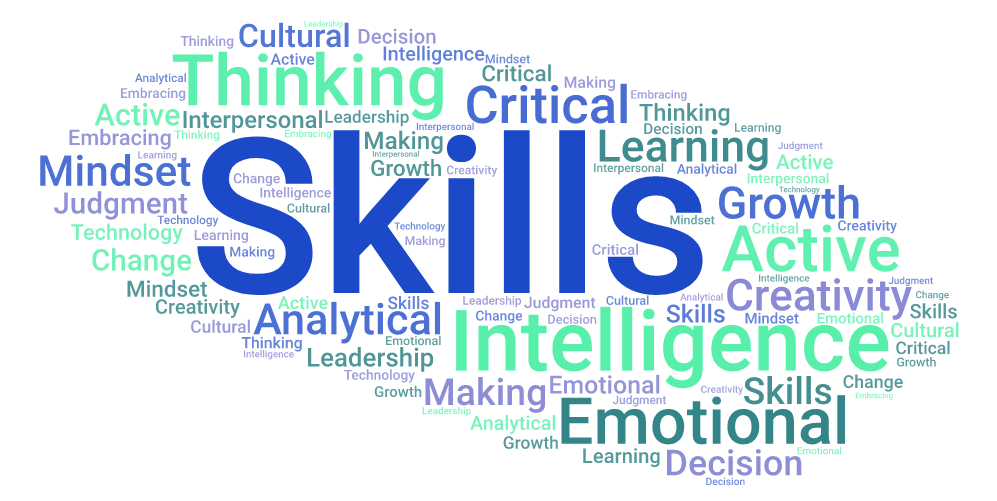From careers for a lifetime, to a lifetime of careers
July 29, 2021

How does the future of work look like? In this evolving world, new occupations and roles which did not previously exist continue to emerge, while certain traditional skills and jobs continue to become obsolete.
Increasingly, employers are looking beyond academic credentials and placing more emphasis on transferable skills. At the same time, the gig economy, which consists of remote and distributed work, continues to grow.
The World Economic Forum’s (WEF) The Future of Jobs Report 2020 (October 2020) highlighted a few key trends.
First, technological adoption of cloud computing, Big Data and e-commerce in many businesses will accelerate the transformation of jobs, skills and entire industry value chains. 85 million jobs are expected to be displaced by a shift in division of labour from humans to machines by 2025, while 97 million new roles may emerge.
Second, online learning and training boomed during the pandemic. The shift was a watershed moment, and there is no turning back for many industries. The pandemic also brought into sharper focus the importance of lifelong learning, with more employees upskilling and reskilling to stay relevant in the volatile job market. More workers are now pursuing personal and professional development, especially in digital skills.
Last but not least, the top skills desired by employers will include critical thinking, analysis, problem-solving and self-management skills such as active learning, resilience, stress tolerance and flexibility.

What skills do employers seek?
Many of these in-demand skills highlighted in WEF’s report corroborate CFG’s Industry Insights Survey (2020). Drawing on insights from career events, industry surveys and engagements, CFG’s survey cited a similar list of soft skills that are becoming increasingly imperative at the workplace.
These are abilities learnt through life experiences that are impervious to change, and relevant across all professions and workplaces. They are attributes we take with us when we embark on job pathways in the New Normal - which are shifting from one defined career over a lifetime, to a series of dynamic and rapidly changing careers.
Our survey clusters these abilities into two main categories: Personal Qualities and Workplace Traits.
Personal qualities
Many employers are looking for individual cognitive abilities such as problem-solving, learning agility and pattern-recognition. They are also seeking graduates who are equipped with design and computational thinking, as well as proficiency in quantitative analysis.
They want graduates who are able to look at problems from different perspectives, to solve complex problems in real-world environments. For example, can a customer service issue be resolved with a combination of user interface design changes, IT infrastructure automation and manpower staffing? What are consumer consumption patterns and behaviours telling us?
Employers also seek character traits such as curiosity, resilience, empathy, proactivity, leadership and adaptability. These traits are predictors of future potential, and potentially determine career longevity and progression. For example, are you curious to learn what other teams or functions are doing beyond your job scope and discover potential synergies? Are you adaptable to changes in your project scope, and possess a “can-do” attitude in the face of obstacles?
Workplace traits
Besides personal qualities, employers are also looking for graduates who possess certain desirable workplace traits. These include good communication and presentation skills, cultural sensitivity and a global mindset. Graduates with business acumen, who are able to influence and negotiate, and are competent in managing different teams and projects, are much sought after.
These attributes mirror the realities of the modern workplace, where teams and projects are becoming more diverse, cross-functional, cross-cultural and business-driven. For example, can you work with a diverse team of colleagues towards achieving a common objective? Can you visualise your organisation’s business potential in an overseas market or a new customer segment?
The call to CHS students
In CHS, you will acquire interdisciplinary knowledge and skills by learning how to draw connections, links and insights across diverse disciplines. It is this important foundation of interdisciplinarity that will better prepare our students to become problem-solvers in an uncertain world beyond the pandemic.
Even as the pandemic has accelerated digital transformation, data is now the new asset that enables businesses to enhance efficiency and augment the ability of their teams to deliver greater value. CHS will focus on competencies like data literacy and design thinking, skills that are now in high demand by industries seeking to unlock value from Big Data.
Beyond academics, internships are one of the best ways to hone workplace experience. When you are on vacation, aim for at least two (if not more) internships, preferably one with an overseas employer. Immerse yourself in co-curricular activities, which provide hands-on opportunities to gain skills such as leadership, teamwork and project management. These experiences in your resume and portfolio will place you in a better stead with employers.

Enhancing employability, preparing for careers
CHS students will have a dedicated Career Advisor, who will guide you through the process of developing a personal career plan. You will be pre-assigned a career preparation module, Career Compass, closely following CFG’s four-year Career Readiness Roadmap which provides a formal framework for your career planning during your undergraduate journey.
You will be enrolled in Career Catalyst, a foundational freshmen module that identifies your core strengths and enhances your profile towards securing an internship. As you progress to Years Two/Three and your final year, you can also sign up for our Career Booster workshops or Career Advancement Webinar Series (CAWS).
Article contributed by the Centre for Future-ready Graduates (Ms Joan Tay, Director and Career Advisors Mr Ryan Ang and Mr Ng Buck Seng)

